Search Results
Showing results 321 to 340 of 1068

Exploring Size: Measure Yourself
Source Institutions
In this activity, learners mark their height on a height chart and discover how tall they are in nanometers.
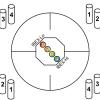
Particle Detection
Source Institutions
By tossing, collecting, and sorting beanbags, learners understand how the IBEX spacecraft uses its sensors to detect and map the locations of particle types in the interstellar boundary.
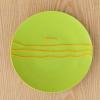
Cutting Pi
Source Institutions
In this activity, learners use a string and pair of scissors to find pi in the world all around them. Take the circumference of a round object with string and cut the string to that length.

Leaf it to Me
Source Institutions
In this activity, learners observe the effect of transpiration as water is moved from the ground to the atmosphere.
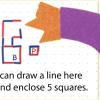
Close It Up
Source Institutions
As learners play this challenging strategy game, they build understanding of area and perimeter. On each turn, a player draws a line between two dots next to each other on the grid.
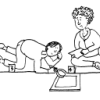
Cool Tool
Source Institutions
In this activity (on pages 10-17), learners discover how scientists study biodiversity and the health of the environment based on inspection of small areas—a process known as sampling.

Magnifying and Observing Cells
Source Institutions
In this activity related to microbes, learners make slides of cells from an onion skin and Elodea (American or Canadian waterweed) to observe under a microscope.
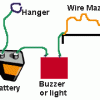
Motor Learning
Source Institutions
In this activity (26th on the page), learners construct an easy-to-build device and test motor learning.

Super Memory
Source Institutions
In this activity (pages 26-29 of the PDF), learners investigate how they can develop super memories by using mnemonic devices.
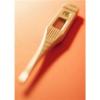
The Ups and Downs of Body Temperature
Source Institutions
In this activity (1st on the page), learners explore circadian rhythms by keeping track of their body temperature.
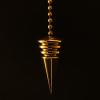
Swing in Time
Learners build and investigate pendulums of different lengths. They discover that the longer the string of the pendulum, the longer the time it takes to swing.
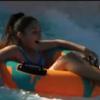
Science at the Waterpark!
Source Institutions
This activity (on page 2 of the PDF under SciGirls Activity: Water Slides) is a full inquiry investigation into speed and motion and takes place at a water park.
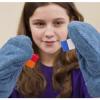
Mitten Challenge
Source Institutions
In this activity, learners try to put together toy bricks—wearing oven mitts on their hands! This activity shows learners how difficult it is to build small things when your tools are too big.

Hockey Stick Power!
Source Institutions
This activity (on page 2 of the PDF under SciGirls Activity: Hockey) is a full inquiry investigation into how a hockey stick’s flex affects shooting power and accuracy.

Geometry Construction: Polyhedral Playthings
Source Institutions
In this activity, learners create 3D geometric shapes using straws and pipe cleaners.
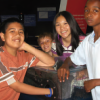
Size and Scale: Probing and Predicting
Source Institutions
In this quick activity about predicting (located on page 2 of the PDF under Where's Nano?

Ice Cream
Source Institutions
In this chemistry activity, learners use the lowered freezing point of water to chill another mixture (ice cream) to the solid state.
Counting Books: Make Your Own!
Source Institutions
On the first night, I saw 5 stars in the desert. On the second night, I saw 10… What do you think I saw on the third night? Combine arts and crafts, literacy, and math by making a counting book.
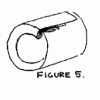
Cylindrical Wing
Source Institutions
In this design and physics challenge, learners construct a cylindrical wing, fly it, make modifications, and determine how the changes affect flight patterns.

The Shadow Knows I
Source Institutions
In this activity, learners will measure the length of their shadow from the Sun and compare it three to four months later.
